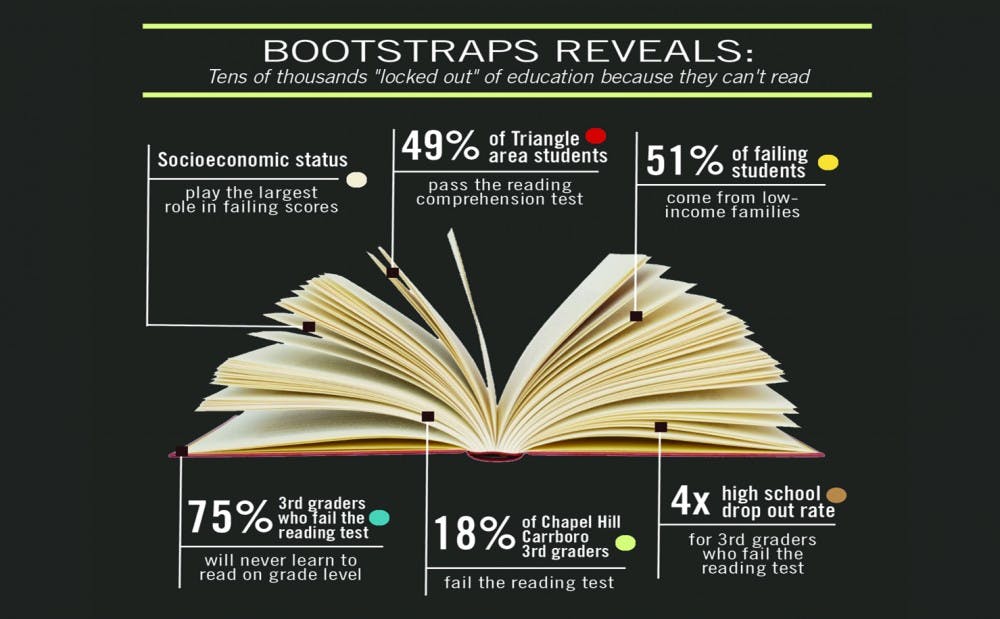Lining streets with gibberish signs like “YRNT SQZP APX,” political action committee Bootstraps aims to bring awareness to literacy issues among public school children in the Triangle area.
After a group of Triangle-area mothers decided that they had to leave the public school system to find tutors for their children, they were inspired to create a political action committee that would heighten political awareness for problems in the education system. Bootstraps’ mission is to address education issues with a bipartisan volunteer-based approach, said founder Mary Carey. She noted, however, that the group has faced obstacles promoting these issues in the Triangle area because of its reputation as a center for research and education.
“We don’t think of our area as uneducated,” Carey said. “Yet there are tens of thousands who are essentially locked out of an education because they can’t read their class materials.”
Based on analysis of the state reading comprehension test results—which show that about 42 percent of Durham Public Schools third graders read below grade level—the mothers decided that socioeconomic status played the largest role in failing scores.
“You see the scores, and you see the options,” Carey said. “It strikes me as elitist… We’re basically saying if you can afford it, your kids can learn to read and if not, they’re stuck.”
In Chapel Hill-Carrboro schools, 18 percent of third graders failed the reading test in 2011 and 51 percent of students from that area coming from low-income families received failing scores. This early indicator of low academic achievement leads to a cycle of illiteracy and poverty, Carey said, adding that third graders who fail reading tests are four times more likely to drop out of high school.
This trend can hinder students past the high school level. According to a study by the American Educational Research Association, 75 percent of third graders who fail the reading test will never learn to read at grade level.
Freshman Leo Lou, a volunteer with the Kenan Institute of Ethics, said it is important that students prepare for their future education from a young age.
“The public school system gets overshadowed by the great universities in the area,” Lou said. “It’s important to keep in mind that elementary schools are responsible for preparing students for these top institutions.”
Carey noted that Bootstraps is trying to raise awareness past the public sphere and into the political one. The organization’s mission is to represent “children who can’t read and are too ashamed to speak for themselves,” especially during local elections.
“Not knowing how to read hurts the individual, but it also impacts society as a whole,” Carey said. “We all have a stake in this problem.”
The idea of community outreach is not exclusive to Bootstraps—Duke students can also help with literacy issues through programs such as America Reads and Counts, which pays students through Federal Work Study to tutor local students in subjects such as reading and math at nearby elementary schools.
North Carolina native and Duke freshman Noah Triplett chose to volunteer at local schools because of his experience in the public school system.
“There just aren’t enough resources at most public schools,” Triplett said. “The teachers try their best but just need a little extra help—which is where volunteer tutors come in.”
Bootstraps hopes to achieve its goal of seeing a Triangle with every adult educated, with the help of volunteers in programs like these.
Get The Chronicle straight to your inbox
Signup for our weekly newsletter. Cancel at any time.

